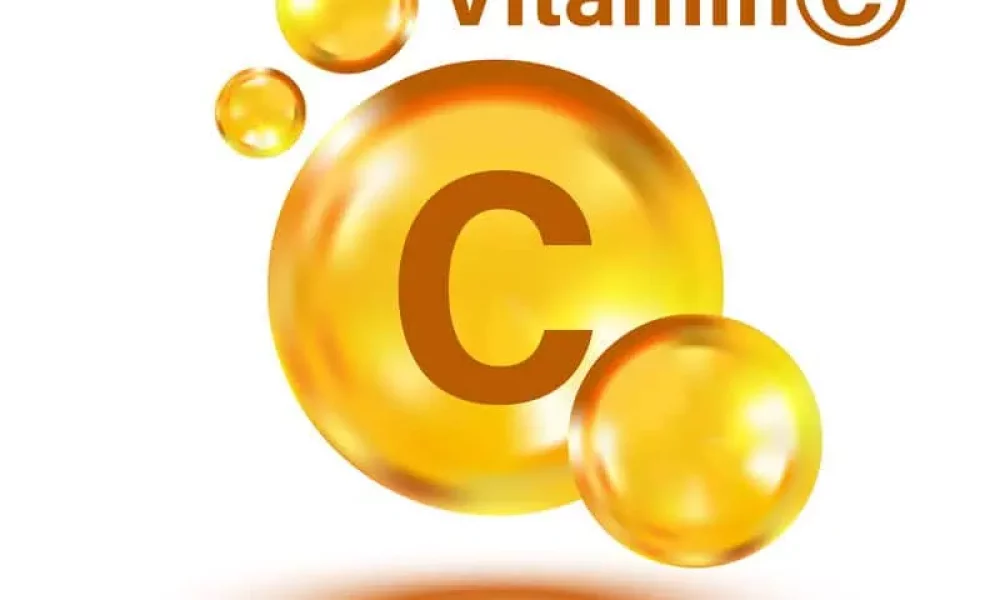In the realm of nutrition, few substances wield as much power and versatility as Vitamin C. Widely celebrated for its myriad health benefits, Vitamin C plays a crucial role in supporting various bodily functions and promoting overall well-being. At Hydription, we recognize the importance of harnessing the potential of essential nutrients like Vitamin C to enhance holistic wellness. In this comprehensive guide, we delve into the wonders of Vitamin C, exploring its benefits for the body, particularly its impact on skin health.
Understanding Vitamin C
What is Vitamin C?
Vitamin C, also known as ascorbic acid, is a water-soluble vitamin found in many fruits and vegetables. While humans are unable to produce Vitamin C on their own, it is an essential nutrient that must be obtained through dietary sources or supplementation.
Sources of Vitamin C in the diet
Vitamin C is abundant in a variety of foods, including citrus fruits (such as oranges and lemons), strawberries, kiwi, bell peppers, broccoli, and spinach. Incorporating a diverse range of fruits and vegetables into your diet is an excellent way to ensure an adequate intake of Vitamin C.
Recommended daily intake of Vitamin C
The recommended dietary allowance (RDA) for Vitamin C varies depending on factors such as age, gender, and life stage. For most adults, the RDA for Vitamin C ranges from 75 to 90 milligrams per day. However, certain individuals, such as smokers and pregnant or breastfeeding women, may require higher doses.
The Role of Vitamin C in the Body
Powerful antioxidant properties
Vitamin C is renowned for its potent antioxidant properties, which help neutralize harmful free radicals and protect cells from oxidative stress. By scavenging free radicals, Vitamin C helps reduce the risk of chronic diseases and supports overall health and longevity.
Support for immune function
Vitamin C plays a vital role in supporting the immune system, helping to enhance the body’s natural defenses against infections and illnesses. Studies have shown that Vitamin C supplementation can reduce the duration and severity of colds and flu, making it a valuable ally during cold and flu season.
Collagen synthesis for skin health
One of the most well-known benefits of Vitamin C is its role in collagen synthesis. Collagen is a protein that provides structure and elasticity to the skin, helping maintain its firmness and youthful appearance. By stimulating collagen production, Vitamin C helps reduce the appearance of wrinkles and fine lines, promoting smooth, radiant skin.
Promotion of wound healing
Vitamin C plays a crucial role in the body’s wound healing process by supporting the formation of new connective tissue and promoting tissue repair. Adequate Vitamin C intake is essential for efficient wound healing, helping wounds close more quickly and reducing the risk of infection.
Contribution to cardiovascular health
Studies have shown that Vitamin C may have a protective effect on cardiovascular health, helping to lower blood pressure, reduce cholesterol levels, and improve blood vessel function. By supporting heart health, Vitamin C may help reduce the risk of heart disease and stroke.
Enhancement of iron absorption
Vitamin C enhances the absorption of non-heme iron from plant-based foods, such as leafy greens and legumes. By pairing iron-rich foods with Vitamin C-rich foods or supplements, you can maximize your body’s ability to absorb iron, preventing iron deficiency anemia and promoting optimal energy levels.
Benefits of Vitamin C for Your Body
Immune System Support
Vitamin C is perhaps best known for its immune-boosting properties. As a powerful antioxidant, Vitamin C helps protect immune cells from damage caused by free radicals, enhancing their ability to fend off infections and illnesses. Research has shown that Vitamin C supplementation can reduce the risk of respiratory infections and shorten the duration of colds and flu.
Vitamin C for Skin Health and Beauty
Few nutrients are as closely associated with skin health and beauty as Vitamin C. As a key player in collagen synthesis, Vitamin C helps maintain the skin’s structural integrity, reducing the appearance of wrinkles and fine lines and promoting a more youthful complexion. Additionally, Vitamin C’s antioxidant properties help protect the skin from environmental damage caused by UV radiation and pollution, preventing premature aging and promoting overall skin health.
Heart Health
Emerging research suggests that Vitamin C may have a beneficial effect on cardiovascular health. By reducing inflammation, lowering blood pressure, and improving blood vessel function, Vitamin C helps support heart health and reduce the risk of heart disease and stroke. Including Vitamin C-rich foods in your diet and considering supplementation may help maintain a healthy heart and circulatory system.
Enhanced Wound Healing
Vitamin C plays a critical role in the body’s wound healing process. As an essential cofactor for collagen synthesis, Vitamin C helps promote the formation of new connective tissue and supports tissue repair. By ensuring an adequate intake of Vitamin C, you can accelerate the healing of wounds, cuts, and injuries, minimizing scarring and promoting optimal recovery.
Iron Absorption
Iron deficiency anemia is a common nutritional disorder characterized by low levels of iron in the blood. Vitamin C enhances the absorption of non-heme iron from plant-based foods, helping prevent iron deficiency anemia and promoting optimal energy levels and overall vitality. Pairing iron-rich foods with Vitamin C-rich foods or supplements can maximize iron absorption and support overall health and well-being.
Incorporating Vitamin C into Your Routine
Dietary sources of Vitamin C
The best way to ensure an adequate intake of Vitamin C is to incorporate a variety of Vitamin C-rich foods into your diet. Citrus fruits, strawberries, kiwi, bell peppers, broccoli, and spinach are all excellent sources of Vitamin C. Aim to include these foods in your meals and snacks regularly to reap the benefits of Vitamin C for your body and skin.
Considerations for supplementation
While a balanced diet should provide ample Vitamin C for most individuals, certain populations may benefit from Vitamin C supplementation. If you have difficulty meeting your Vitamin C needs through diet alone or have specific health concerns that may require higher doses of Vitamin C, speak with your healthcare provider about whether supplementation is appropriate for you.
Hydription’s approach to holistic wellness and the role of Vitamin C in its product offerings
At Hydription, we believe in the power of holistic wellness to transform lives from the inside out. That’s why we’ve carefully curated a range of products designed to support your body’s natural processes and promote optimal health and vitality. Our line of Vitamin C-infused skincare products harnesses the potent antioxidant properties of Vitamin C to nourish and rejuvenate your skin, leaving it looking and feeling its best. From serums and moisturizers to masks and treatments, our Vitamin C skincare formulations are formulated to deliver visible results and promote a radiant, youthful complexion. Discover the transformative power of Vitamin C for your skin with Hydription’s innovative skincare solutions.
Conclusion
In conclusion, Vitamin C is a powerhouse nutrient with a wide range of benefits for the body, from supporting immune function and heart health to promoting skin health and beauty. By incorporating Vitamin C-rich foods into your diet and considering supplementation when needed, you can harness the power of Vitamin C to enhance your overall health and well-being. At Hydription, we’re committed to helping you look and feel your best from the inside out. Explore our range of Vitamin C-infused skincare products and unlock the transformative benefits of Vitamin C for your skin today.







